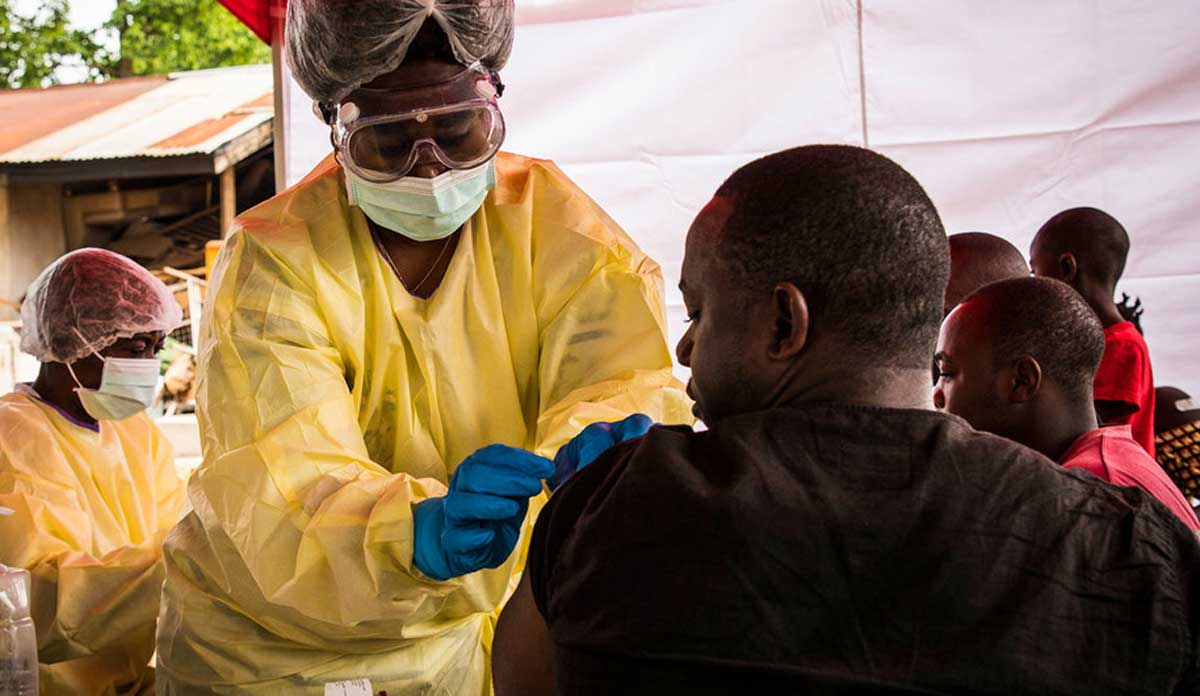The African Union Commission (AUC) and the Vaccine Alliance (Gavi), in an effort to increase access and accelerate the uptake of life-saving vaccines across African Union member states towards supporting immunisation, providing technical and learning assistance and health systems strengthening, have signed a Memorandum of Understanding (MoU) mid-May 2023.
“Children of today are the leaders of tomorrow. Knowing they are prone to preventable life-threatening diseases, we – current leaders – must do all it takes to protect and secure their future. I am well-pleased with the growth of the partnership between the AUC and Gavi, which I am certain will accelerate reducing the number of zero-dose children worldwide by 2030,” said H.E. Amb. Minata Samate Cessouma, Commissioner for Health, Humanitarian Affairs and Social Development.
“In September 2022, the African Union Commission and Africa CDC launched the New Public Health Order, which offers insights and a roadmap towards health security on the continent. The collaboration of the AUC and Gavi will further relate to Africa CDC-led initiatives for vaccine uptake in AU member states, as well as support investments in the goal to locally manufacture 60% of the vaccine doses required on the continent by 2040” underscored the Director General, Africa CDC, Dr. Jean Kaseya.
“As an Alliance of governments, partners, civil society, industry and others, Gavi has a longstanding commitment to support access to life-saving vaccines through sustainable immunization programmes, and to collaborate with countries to strengthen health systems across Africa. This MoU is the strengthening of our shared determination to protect more children against vaccine-preventable diseases and to help realise the AU’s vision for sustainable vaccine manufacturing and the New Public Health Order on the continent,” stated the CEO of Gavi, Dr. Seth Berkley.
Through this MoU, AUC and Gavi Alliance commit to work together to:
1. Scale up and strengthen routine immunization, focusing on reaching “zero dose” children – children that have not received a single dose of a routine vaccine;
2. Build sustainable regional vaccine manufacturing in Africa;
3. Undertake joint advocacy to boost vaccine demand for routine vaccines;
4. Strengthen primary health care systems and bolster diagnostic and surveillance capacity for diseases such as yellow fever, cholera, and typhoid;
5. Communicate jointly on routine immunization, pandemic prevention, preparedness and response (PPR), vaccine access and delivery;
The AUC and Africa CDC, in April 2021, established the Partnerships for African Vaccine Manufacturing (PAVM) to steer a bold goal that will enable the African vaccine manufacturing industry to develop, produce, and sustainably increase supply, from less than 1 percent, currently. This goal can be reached through achieving sustainable and reliable economies of scale by launching mechanisms that create demand certainty for manufacturers while facilitating country procurement.
The AU Bureau of Heads of State and Government further requested Gavi Alliance and other partners to procure a percentage of all vaccines produced by the continent. In December 2022, the Gavi Alliance Board approved a plan to support the development of a regionally diversified vaccine manufacturing ecosystem, based on three pillars: support for strategic antigen selection by manufacturers/countries, market shaping and demand creation.
The initiative, supported by the African Union, Africa CDC, G7 and other stakeholders also envisages the possibility of a fourth pillar, the design of a new financial instrument in the form of an Advance Market Commitment (AMC) for African vaccine manufacturing.
The global COVID-19 pandemic and climate change impact have jeopardised the health, security, and livelihoods of people across Africa and impeded the progress made over the years in reaching over 400 million children with vaccines and averting more than 9.9 million future deaths on the continent.
The major focus of this new agreement is forging new and strengthened partnerships to reach the millions of “zero-dose” children, particularly in marginalised settings that still lack access to vaccines and other essential services in addition to providing a concrete framework for the AUC and Gavi Alliance to jointly address these challenges, identify gaps and monitor progress to achieve universal access to immunization and drive positive impacts on the continent.
According to reports, the MoU was signed on behalf of the African Union Commission Chairperson by the AU Commissioner for Health, Humanitarian Affairs & Social Development (HHS), H.E. Amb. Minata Samate Cessouma and Africa Centre for Disease Control and Prevention (Africa CDC) Director General, Dr. Jean Kaseya and Gavi Chief Executive Officer Dr. Seth Berkley.
The partnership builds on the historic Addis Declaration on Immunization (ADI), which aims to ensure that everyone in Africa – regardless of who they are or where they live – receives the full benefits of immunization. It includes 10 commitments to increase political, financial and technical investments in immunization programs. The evolving direction of this partnership is bound to accelerate the attainment of health security as premised in the AU Agenda 2063 and the New Public Health Order (NPHO).


